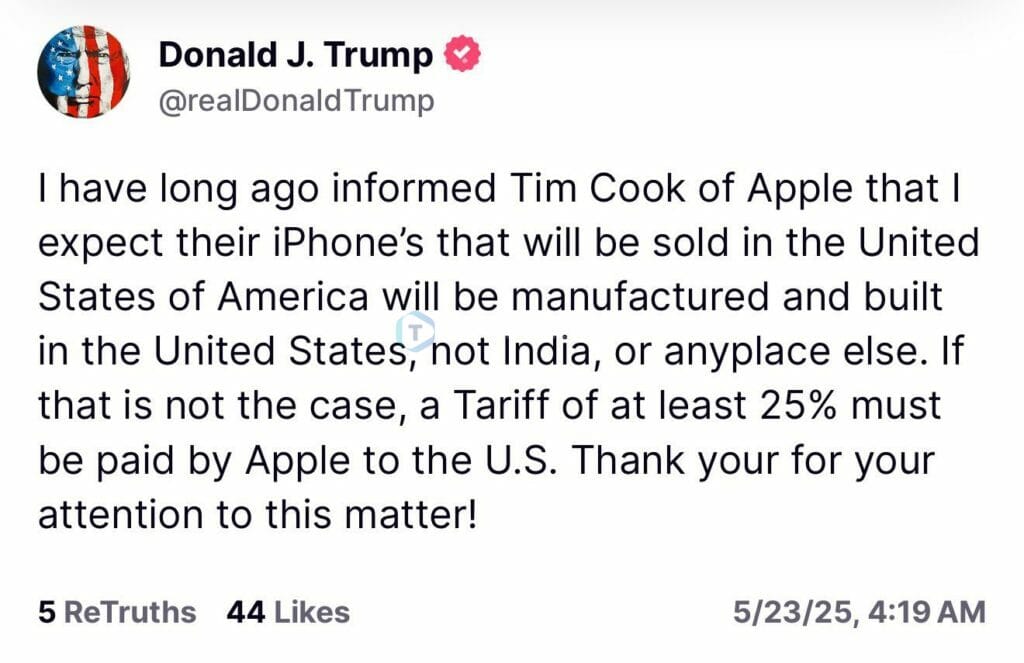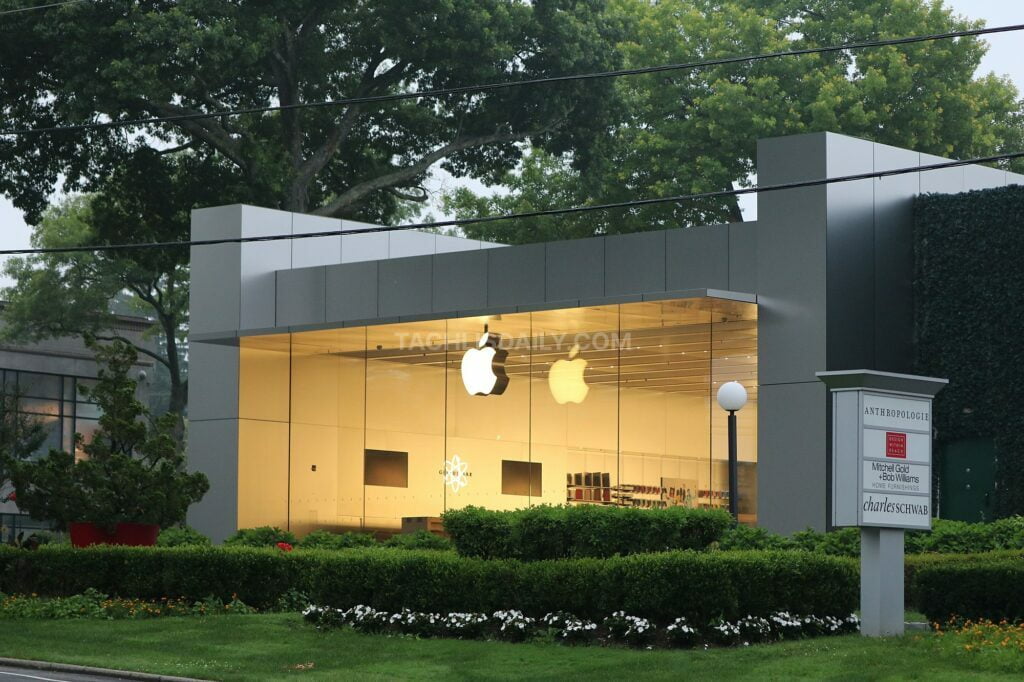President Donald Trump announced that Apple will face a tariff of 25% or more on iPhones manufactured outside the United States, escalating pressure on the tech giant to shift production back to American soil. In a direct message on social media, Trump stated that he had made it clear to Apple CEO Tim Cook that iPhones sold in the U.S. must be built domestically, not in countries like India or China. He emphasized that if Apple chooses to produce iPhones overseas, the company must pay a substantial tariff to bring those products into the American market.
Apple shares dropped 3% following Trump’s statement. The company currently produces most of its iPhones in China but has recently begun shifting some of its manufacturing operations to India. Analysts have warned that moving iPhone production to the U.S. could raise the device’s cost by at least 25%, with some estimates putting a domestically made iPhone’s price near $3,500 compared to the current $1,000 for the iPhone 16 Pro.
Trump added that the proposed tariff will not be limited to Apple alone but will also apply to other smartphone manufacturers, such as Samsung, starting at the end of June. The former president criticized Cook’s decision to expand manufacturing in India, reiterating that selling foreign-made phones in the U.S. without tariffs would not be permitted.
Trump and Tim Cook reportedly met at the White House earlier this week. While the details of their conversation remain undisclosed, the administration is emphasizing a broader push to revitalize precision manufacturing and bolster national security through a more reliable semiconductor supply chain. Treasury Secretary Scott Bessent reinforced this strategy in a media interview, noting Apple’s role in advancing U.S. semiconductor production.
Apple has remained quiet on Trump’s remarks. During its recent earnings call, CEO Tim Cook acknowledged the uncertainty around future tariff costs, indicating the company expects roughly $900 million in additional tariff-related expenses this quarter alone. Apple has committed $500 billion toward U.S. development, including new AI server production facilities in Houston, signaling at least some willingness to increase domestic investment.
At the same time, Apple faces weakening demand in China, prompting the company to increase trade-in incentives for iPhones in that market. Trump’s stance adds to broader trade tensions, as he followed up his Apple statement with a call for a 50% tariff on European Union products. These developments signal a renewed emphasis on economic nationalism and manufacturing sovereignty, hallmarks of Trump’s economic policy platform.
Apple had previously avoided direct tariff penalties on its flagship products during Trump’s first term, thanks to personal engagement by Cook, which helped secure exemptions during trade negotiations with China. That relationship now appears to be strained, with Trump signaling a firmer stance heading into the next phase of U.S. trade policy.













